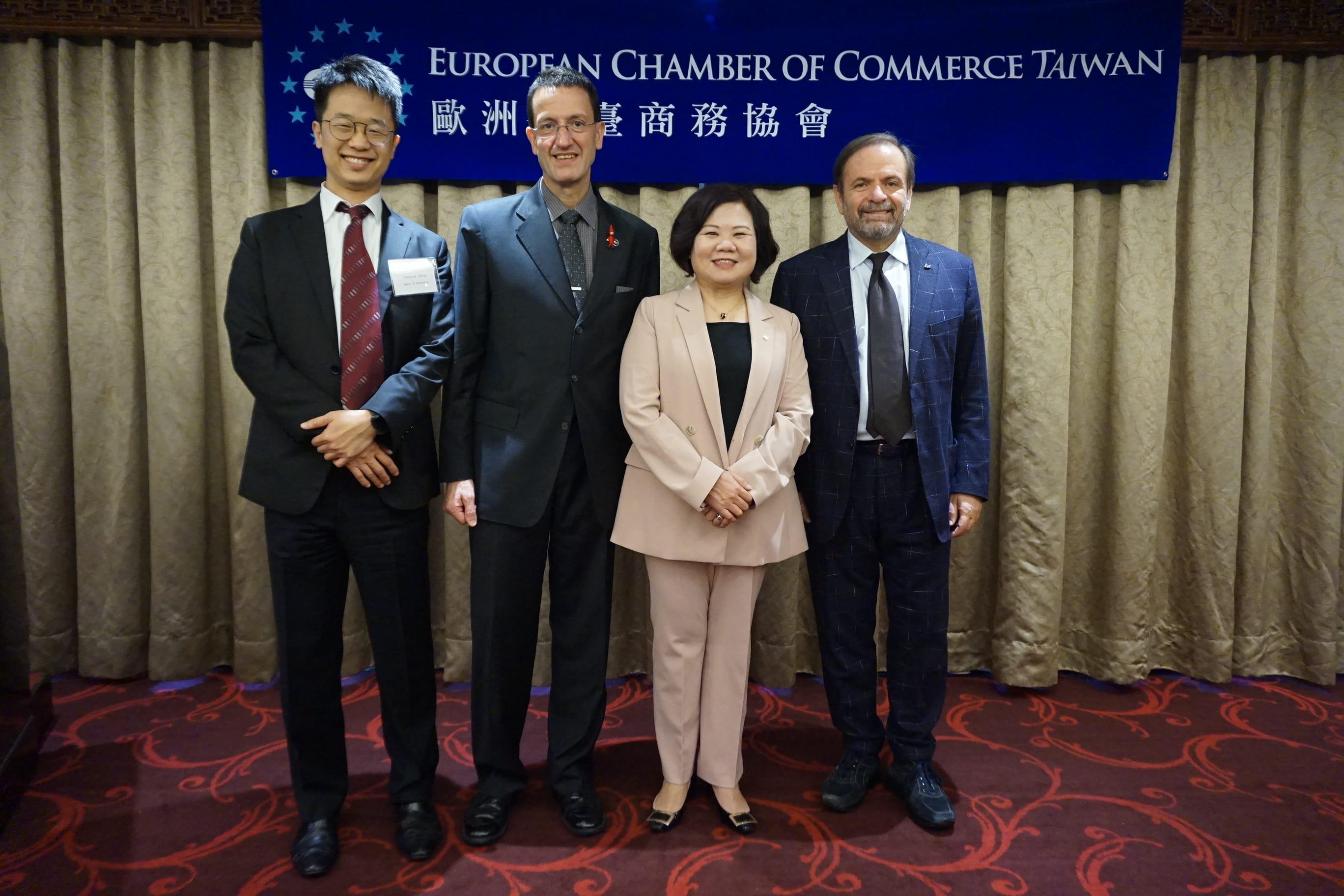Premium Event with the Minister of Labour

The ECCT hosted a Premium Event lunch with Hsu Ming-chun, Minister of the Ministry of Labour. Minister Hsu gave a presentation on the subject of labour policy in the post-pandemic era and answered questions from members in an extensive Q&A session.
Minister Hsu began by noting that industrial changes, diverse economic activities, and the outbreak of the coronavirus pandemic have led to changes in the way people work in many industry sectors. She cited examples, such as the surge in popularity of food delivery services, which has led to challenges in how to regulate food delivery businesses and workers. The pandemic has also sped up the trend towards remote working. Nevertheless, Taiwan's Labour Standards Act still requires employers to keep attendance records as the basis for conducting inspections on records of wages, working time and identifying occupational hazards. This also applies to remote workers, although various electronic devices may be used to assist in keeping records. Remote workers should apply for overtime in advance and may record the starting and ending time of work by themselves, as long as they provide evidence.
The MOL's general principle with regards to gig economy workers is to ensure the rights and interests of workers are guaranteed first but also avoid hindering economic innovation and development while respecting workers' freedom. With this in mind, the MOL's priority is to ensure the occupational safety and health of gig workers and that they are covered by insurance. Minister Hsu noted that the MOL has already made progress by formulating guiding principles on labour contracts to help enterprises better understand labour contracts and avoid encroaching on workers' rights. In response to a rise in accidents involving food delivery workers, the ministry has also strengthened the legal effect of food delivery safety protection regulations and safety guidelines, to ensure the occupational safety of delivery personnel. Specifically, the MOL formulated the “Guideline for the Safety of Food Delivery 1.0” on 2 October, 2019, asking enterprises to implement safety measures to prevent traffic accidents and heat hazards. The guidelines were subsequently updated to ensure better working conditions and insurance for delivery workers.
Moving on to the subject of foreign talent, Minister Hsu noted that no work permit required is required for business activities, charity events or providing services in order to fulfil contracts if done within 30 days from arriving in Taiwan. The government has also introduced incentive programmes to attract foreign talent, including the Employment Gold Card scheme.
Taiwan's Employment Services Act follows the principle that the recruitment of foreign professions should not affect the employment rights of nationals. Requirements on qualifications for foreign talent have been loosened over the years. Recently for example, a consultation mechanism was established for exemptions to the requirement that recruits have previous work experience. The minimum salary threshold requirement for recruiting foreign talent is also low at NT$47,971 compared to Singapore and Hong Kong while foreign and overseas Chinese students with qualified scores under a point system may be exempted.
According to Minister Hsu, the process to review employment permits applications of foreign professionals takes 12 days when submitted by mail but only seven days when done online. She added that the standard of translation for required documents made in foreign languages has been simplified and that abridged versions of translations with essential content may be submitted.
According to Hsu, 1,477 Employment Gold Card applications had been reviewed and 1,361 employment permits for foreign special professionals had been issued by September 2020. In addition, 36 work permits have been issued for the adult children of foreign professionals.
Looking ahead, the MOL has drafted a New Economic Immigration Act aimed at addressing the demographic changes in the labour market and recruiting the talent and manpower needed for the economy. There are four targets of the new act: foreign professionals, foreign mid-level technicians, overseas compatriots and immigrant investors. The draft was submitted to the Legislative Yuan for review in January this year.
According to Hsu, the number of foreign professionals coming to Taiwan increased by 15.81% between March and October this, which she attributed to the return of overseas Taiwanese investors as a result of the US-China trade conflict and the effectiveness of Taiwan's epidemic prevention measures, which has made Taiwan more attractive to foreign talent. She concluded that the MOL will continuously review its policies on the retention and recruitment of talent and simplify application procedures under the principle of not jeopardising the employment of citizens.
